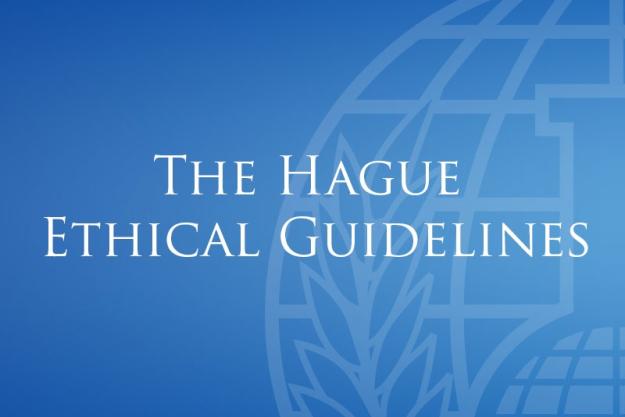
The Hague Ethical Guidelines, facilitated by the Organisation for the Prohibition of Chemical Weapons (OPCW) to guide the responsible practice of chemistry under the Chemical Weapons Convention, have inspired the creation of a new Global Chemists’ Code of Ethics. The new global code was drafted by 30 scientists from 18 countries who gathered in Kuala Lumpur at a workshop funded by the U.S. Department of State’s Chemical Security Programme and organised by the American Chemical Society.
“The Global Chemists’ Code of Ethics is the first international code to be drafted using the key elements outlined in the Hague Ethical Guidelines,” said Dr Kabrena Rodda, Technology and Policy Integration Specialist at the Pacific Northwest National Laboratory in the United States, who co-organised the initiative to draft the new code. “As a result, the code retains the high degree of flexibility that exists in The Hague Ethical Guidelines, so it can be adapted to a country’s local context as needed, while still addressing each of the key elements outlined in the Guidelines.”
OPCW Director-General Ahmet Üzümcü welcomed this development. “The OPCW is working hard to promote a culture of responsible scientific conduct,” Üzümcü said. “The Hague Ethical Guidelines are intended to inspire future ethical codes. The fact that they served as a basis for the new Global Chemists’ Code of Conduct fully demonstrates their vitality and utility.”
About The Hague Ethical Guidelines
Originally a German initiative, The Hague Ethical Guidelines were developed by scientists and chemistry professionals from over 20 countries during two workshops facilitated by the OPCW in 2015.
For further information, see:
https://www.opcw.org//special-sections/science-technology/the-hague-ethical-guidelines
About The Global Chemists’ Code of Ethics
The Global Chemists’ Code of Ethics aims to address real-world ethical questions in the chemical industry by incorporating criteria such as safety, security and sustainability prepared for policy practitioners, industry professionals and academia. In addition, educational materials are also available for organisations to conduct their own workshops to develop and revise their existing codes of ethics.
For further information, see:
http://www.acs.org/content/acs/en/global/international/science-and-human-rights.html
